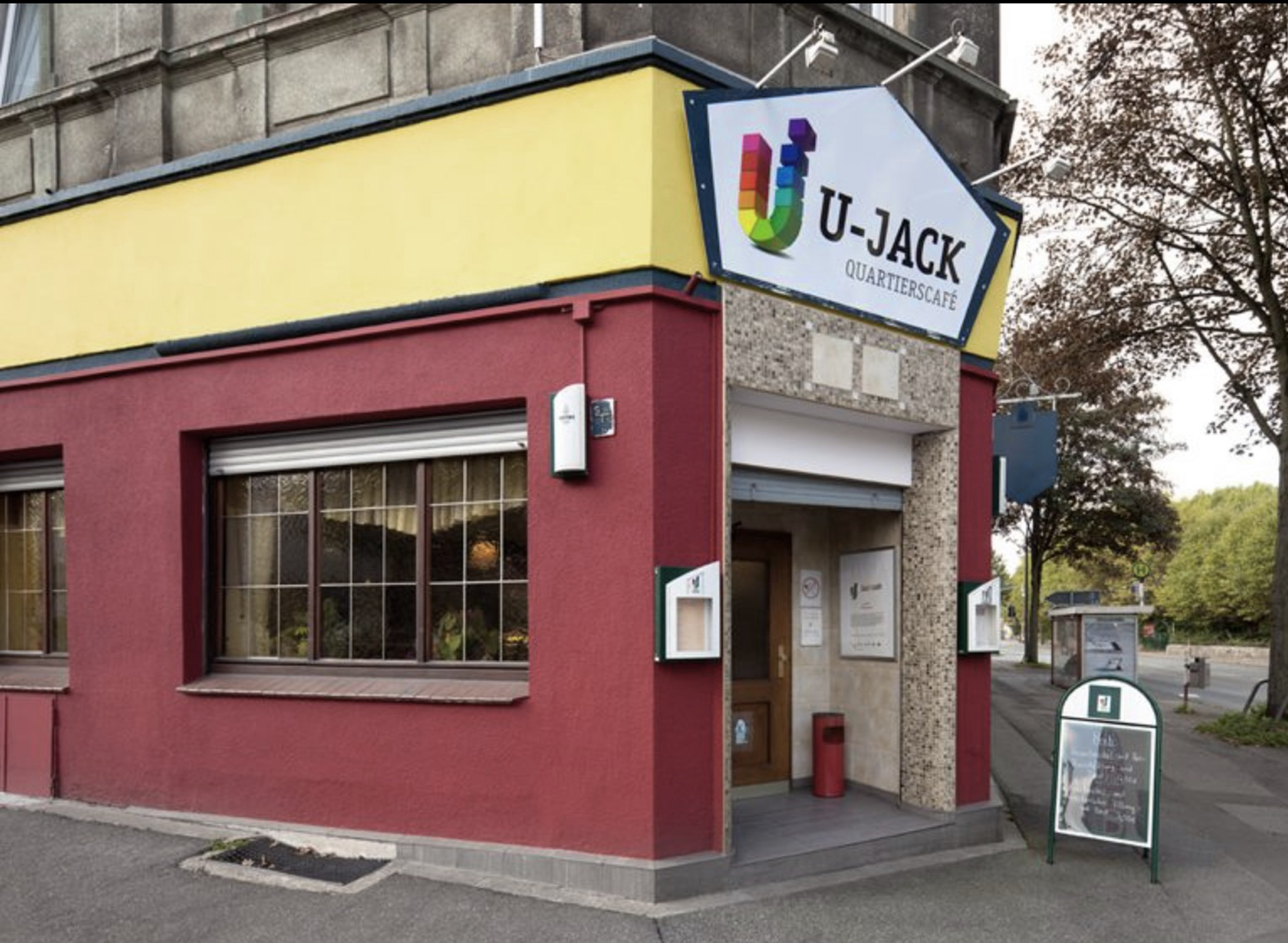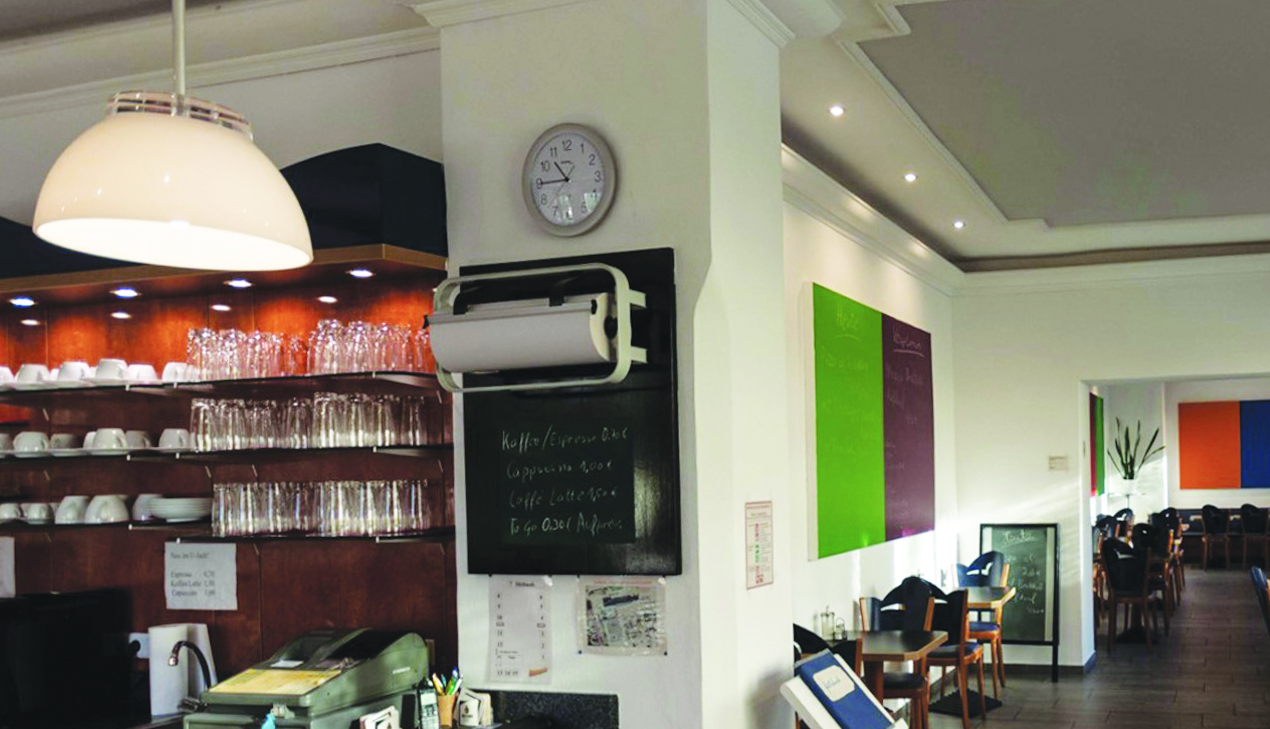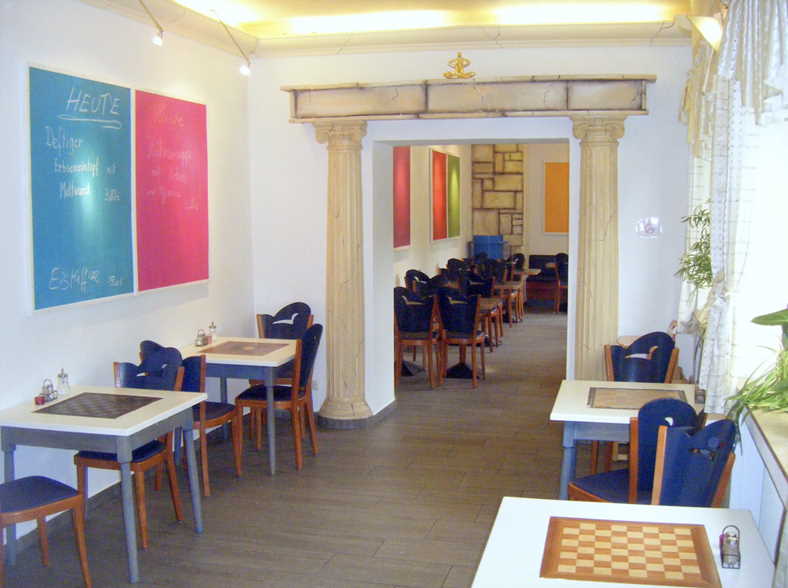WHO
The project was initiated by Ewedo GmbH, as part of the urban renewal strategy. It was one of the initiatives catalysed by the "Agency for New Uses" that offered funding to activate the vacant pizzeria.
Project partners included:
- Job Centre (City of Dortmund)
- Department of Urban Development (City of Dortmund)
- VMDO (Association of Socio-Cultural Migrants Associations in Dortmund (from its initials in German))
- Professional staff
- Local people who had previously been unemployed and registered with the Job Centre
WHAT
Cafe U-Jack opened in Dortmund in 2012 as a way of supporting local long term unemployed people to develop skills in service, cooking and housekeeping at the same time as creating a neighbourhood meeting place.
Cafe U Jack provides staff with regular daily employment, positive feedback and a positive profile in the area, resulting in a strong motivation and positive experience that can have a positive effect on further professional development. Furthermore, because of the overall positive impact of the meanwhile use for the neighbourhood, Ewedo decided to transform the meanwhile use to a permanent restaurant location.
The operation of the cafe made it possible to host other local activities such as "Tandem - Walking together, arriving together", that aimed at bringing people with and without a migrant background in the district together in an action-oriented way, strengthening their community and culture of dialogue. During the summer months when the restaurant was closed, collaboration with another project provided opportunities for participants to learn decorating and interior design skills.
HOW
The Cafe U Jack team (coordinated by Ewedo) had to learn how to run the cafe according to the local needs and constraints. EWEDO had no prior experience of running a cafe, and so the project brought some challenges that the project team had to solve themselves.A housekeeper provided by the team helped make sure the kitchen and cafe ran smoothly, organising service and managing the cash entry and bookkeeping. There was also support from a technical supervisor for the refurbishment of the space, e.g. in terms of energy usage of the kitchen facilities. Food was served every weekday lunchtime (11.30 a.m. - 3 p.m.) but not at the weekend or in the evenings. The rest of the day was used for grocery shopping, food preparation and kitchen maintenance i.e. preparing everything for the next day’s service.
The offer of the neighborhood café responds to the needs of the customers. The target group for Cafe U-Jack are primarily the residents of the district with a focus on socially disadvantaged residents, families and children. To ensure that the Cafe is still accessible and affordable for all local people, a loyalty card called the ‘Dortmund Pass’ has been issued to people who have a small income. Customers that present the ‘Dortmund Pass’ receive food at reduced prices.
Another aspect of this activity was managing the Cafe’s finances. Cafe U Jack has several income streams. Cost of ingredients are covered by the revenue from selling food and drinks. Additionally, there was some budget from the programme "Socially Integrative City" as well as from the District Council. The different funding streams were brought together and it has been possible for EWEDO to finance the U-Jack project until today whilst implementing several other projects.



REFERENCES
Castro, A. and E. Wascher (2021), ‘Dortmunder U and Union Quarter - The Role of Meanwhile Uses in Urban Regeneration: T-Factor Advanced Case Study Report’, Working Paper, Technische Universität Dortmund, at http://dx.doi.org/10.17877/DE290R-22049 View File